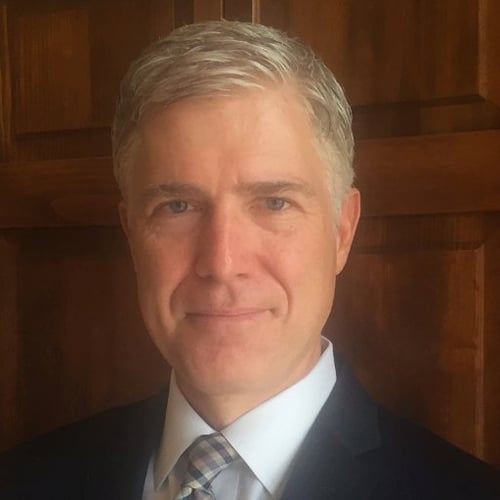As opposition to administrative state grows, Gorsuch stance on Chevron deference is likely issue

Judge Neil Gorsuch.
Conservatives who want to reduce the power of federal regulators might have an ally in U.S. Supreme Court nominee Neil Gorsuch.
A judge on the Denver-based 10th U.S. Circuit Court of Appeals, Gorsuch wrote an opinion last year that is likely to be an issue during confirmation hearings next week, according to the New York Times’ DealBook blog. The opinion opposed the doctrine of Chevron deference, which holds that federal courts should defer to federal agency views when Congress passes ambiguous laws.
Chevron deference was established in Chevron USA v. Natural Resources Defense Council, a 1984 case that, ironically, supported a decision to reverse a Carter administration rule by Gorsuch’s mother, then-Environmental Protection Agency chief Anne Gorsuch.
Chevron deference originally was used on behalf of agencies in fighting deregulation, but it has since been used in Democratic administrations to support more vigorous regulation, the article explains.
Gorsuch’s views on Chevron deference are different from that of the late Justice Antonin Scalia, who had argued that judges are less capable than regulators in interpreting laws. Gorsuch criticized Chevron deference in an immigration case, Gutierrez-Brizuela v. Lynch, according to DealBook, and a prior story by the National Law Journal (sub. req.).
“Whatever the agency may be doing under Chevron, the problem remains that courts are not fulfilling their duty to interpret the law and declare invalid agency actions inconsistent with those interpretations in the cases and controversies that come before them,” he wrote.
The issue in Gutierrez-Brizuela was whether an interpretation of immigration law by the Board of Immigration Appeals, which was contrary to an interpretation by the courts, could be applied retroactively.
Allowing such an override, Gorsuch wrote, turns administrative agencies into a “super court of appeals. If that doesn’t qualify as an unconstitutional revision of a judicial declaration of the law by a political branch, I confess I begin to wonder whether we’ve forgotten what might.”



